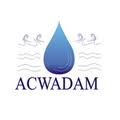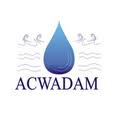/regions/political
Political
The sanitation crisis in India - An urgent need to look beyond toilet provision
Posted on 18 Apr, 2012 12:14 PMGuest post by: Aarti Kelkar-Khambete
Image Courtesy: Wikimedia Commons
The sanitation crisis and the recent evidence on lack of toilet facilities
Water supply and demand management of the Indus basin : Options for current and future sustainable water resources management
Posted on 17 Apr, 2012 12:04 PMArticle Courtesy : Hydrology and Earth System Sciences (HESS)
Authors : A.N. Laghari, D.Vanham, and W.Rauch
Workshop on climate change, water, energy nexus in India, The Energy & Resources Institute, April 17-18, 2012, India Habitat Center, New Delhi
Posted on 16 Apr, 2012 12:29 PMOrganiser: The Energy & Resources Institute
Venue: Casurina Hall,
India Habitat Center,
Lodhi Road,
New Delhi - 110 003

TERI was formally established in 1974 with the purpose of tackling and dealing with the immense and acute problems that mankind is likely to face within in the years ahead
Training workshop on ground water management, rain water harvesting and artificial recharge, Earth Water Group, April 20-21, 2012, at Rajputana Resort, Udaipur
Posted on 16 Apr, 2012 11:38 AMOrganiser: Earth Water Group
Venue: Rajputana Resort and Lake Palace Nahargarh
Sec-11, Hiran Mangri,
Near Savina Math,
Udaipur – 313001
Rajasthan
![]()
Incepted in 2000, the Earth Water Group is a frontrunner in addressing key issues facing the world sector today viz: Infrastructure Development, Quality of Water, Water Conservation and Environmental Protection etc.
Training in water supply distribution modelling, EPANET, The Community Engineers, April 28, 2012, Bangalore
Posted on 16 Apr, 2012 08:11 AMOrganizer: The Community Engineers (TCE)
Venue: Yeswanthpur, Bangalore

Description:
Trainees will be provided with the EPANET 2.0 software, Handouts and EPANET Manual. TCE has carried out several training in Water Supply Distribution Modelling using EPANET across India.
Training and facilitation in hydrogeology, groundwater and watershed management , organised by ACWADAM, May 28 – June 12, 2012, Pune
Posted on 15 Apr, 2012 11:31 PM
Organizers: Ford Foundation, Arghyam and Advanced Center for Water Resources Development and Management (ACWADAM)
Venue: To be decided
ACWADAM is a not-for-profit organization that aims to develop solutions to groundwater problems of today and tomorrow. It is a premier education and research institution and facilitates work on groundwater management through action research programmes and trainings.
Advanced Center for Water Resources Development and Management (ACWADAM) is looking for a scientist and researchers, based at Pune
Posted on 15 Apr, 2012 03:39 PMAdvanced Center for Water Resources Development and Management (ACWADAM) is a civil society organisation working on groundwater management in different parts of India. ACWADAM’s focus is in the area of developing and improving understanding of groundwater resources. It also deals with the demystification of groundwater science and strengthening hydrogeological capacities of institutions working in the water sector in India.
Rohini Nilekani, Chairperson of Arghyam announces transition in leadership: Jayamala Subramaniam to take over from 1st June, 2012
Posted on 13 Apr, 2012 05:44 PMShe comes to Arghyam with a background in the corporate and not for profit sectors, both in India and abroad. She has a record of achievement in taking initiatives to scale in the financial and education sectors and substantial experience as a coach and mentor.

